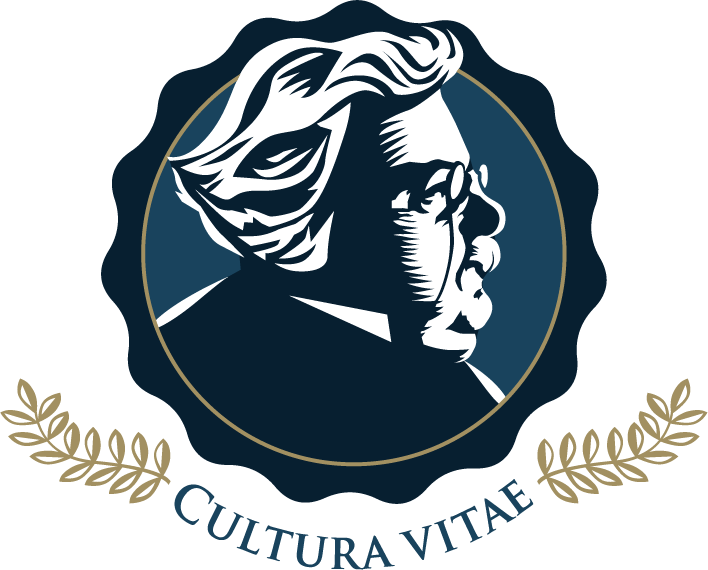In Praise of Useless Reading
In An Experiment in Criticism, C.S. Lewis asserts that there aren’t two types of books (good and bad), but instead, there are two types of readers: the “many” and the “few”. I feel confident that everyone reading this blog post falls into the second category.
Here’s how Lewis describes us:
We love talking to others about books.
We re-read books that we love.
Reading is an ingredient in our well-being, and we are always looking for opportunities to read.
We experience something so momentous that what we have read fundamentally changes us when we read.
But the critical difference is that the ‘few’ surrender to literature—getting ourselves out of the way and allowing it to do something to us—while the ‘many’ merely use it. Simply put, as an art form, literature is necessarily useless. And that’s precisely what makes it so important.
Like Josef Pieper says about leisure and Bishop Robert Barron says about the Mass, reading literature is useless in the truest sense of the word; we cannot use any of these things but instead, by their very nature, must receive them.
In the fifth chapter of Art and Scholasticism, Jacques Maritain talks about “Art and Beauty”, pointing out that the beauty of a work of art is that it draws us out of ourselves. “Beauty delights the intellect and the senses,” he says. Beauty, because of its metaphysical nature, draws the soul beyond the created to the creator. So, I don’t think it’s a stretch to claim that time spent reading can bring us closer to God.
Maritain continues by saying that the fine arts are where matter and spirit meet. Thus, art is a fundamentally human endeavor, as we humans are both matter and spirit. Made in the image of The Creator, we are—as Tolkien says—“sub-creators.” We act in the nature of our personhood, as image-bearers, when we put something into a form for others to encounter—or, as the reader of books, receive and respond to the form that someone else created for us. In so doing, we connect with the author of the work of art we are reading.
But it goes beyond this. In the very title of his latest book on reading, Alan Jacobs says that when we read old texts, we “break bread with the dead”—we commune with others who have gone before us.
We encounter not just the author, but all of the other people who have read that book – which in the case of a “classic” means people over centuries and possibly even millennia.
These great books—the ones that have withstood the test of time and have shaped our civilization—are part of what the authors of the Theology of Home call our “literary patrimony.” To deprive ourselves—or our children—of these fabulous works of art would be to miss out on some of what it means to be human.
Is there a role for nonfiction in our reading? Certainly. Every book I mention in this article is a nonfiction book that I read, thought about, narrated, and discussed my way through to inform my understanding of the purpose (or lack thereof) of reading. And yet, there’s a part of the human person that a nonfiction book, essay, or another didactic form cannot reach.
Human beings are a mystery, and so too is a work of art. In fiction, an author can grapple with big questions about life, and we as the reader can encounter an embodied idea that gives us a telos to strive for or a brutal look in the mirror from which we must repent. Something about fiction, in particular, speaks through our imagination directly into our soul.
Cultivating our capacity to be affected by art is part of what makes us more human. Fiction has a unique way of doing this by allowing us to enter into characters’ experiences and grow in empathy and charity in the process. In short, fiction can make us better mothers, wives, sisters, friends, and people. And yet, we must not read with these specific goals in mind. Instead, we choose to read fiction for its own sake.
To be sure, reading fiction cannot take the place of reading Scripture. And we ought also to spend time reading spiritual classics and works by and about the saints. But we must also make time for the reading of great literature.
Meghan Cox Gurdon, the author of The Enchanted Hour, a book about reading aloud to our children, writes that “making the time to read together is almost an obstinate act of love.” I would argue that making time to read literature at all is an obstinate act against the prevailing utilitarianism of our world that tells us we ought not to waste time but instead to do, do, do. When we sit down with a worthy work of fiction, we reject the lie that our worth is what we accomplish. We also let go of our attachment to results or fruits, choosing to encounter a work of art for the sake of the art itself.
So, the next time you crack open a great book for this “Year of the Family”, consider the useless way you’ve chosen to spend your time. And then praise God for the tremendous gift that this uselessness is.
This article first appeared in the Well Read Mom Journal. Nicki Johnston is a home educator, a CGS catechist, an avid reader and an amateur naturalist. She lives in Kansas with her husband, Graham, and their four young sons. We are so blessed to have her not only participating in community enrichment conversations, but also sharing the fruit of her intellectual life freely with us. See her posts on Wendell Berry’s Jayber Crow and on Flannery O’Connor’s The Violent Bear It Away.

